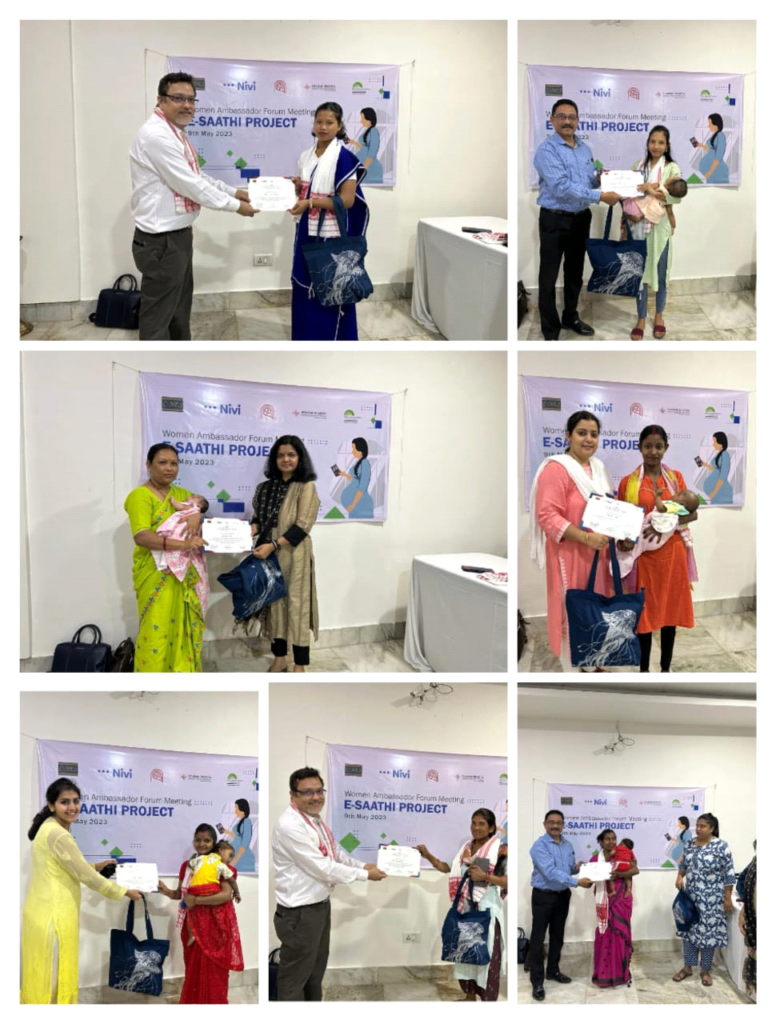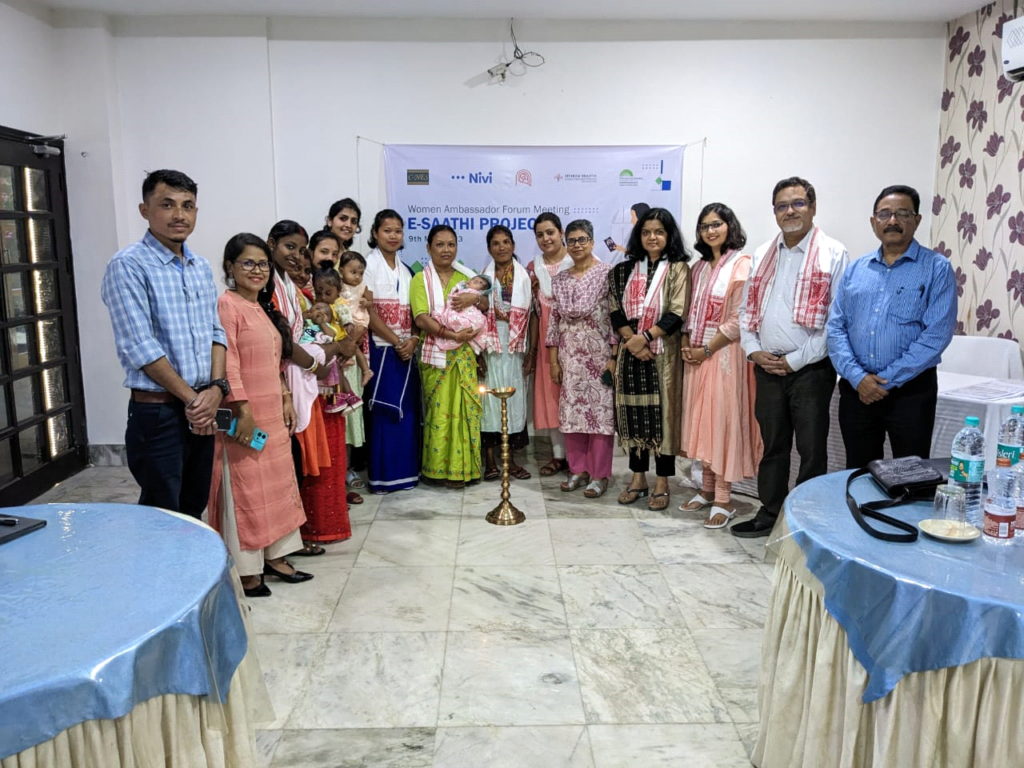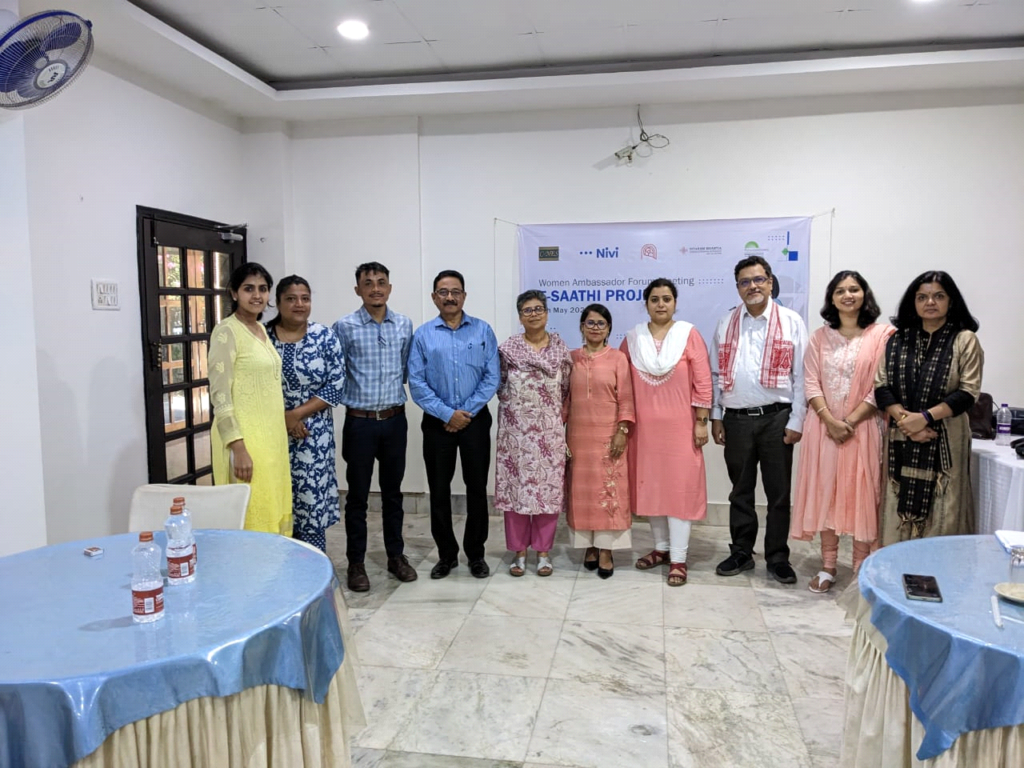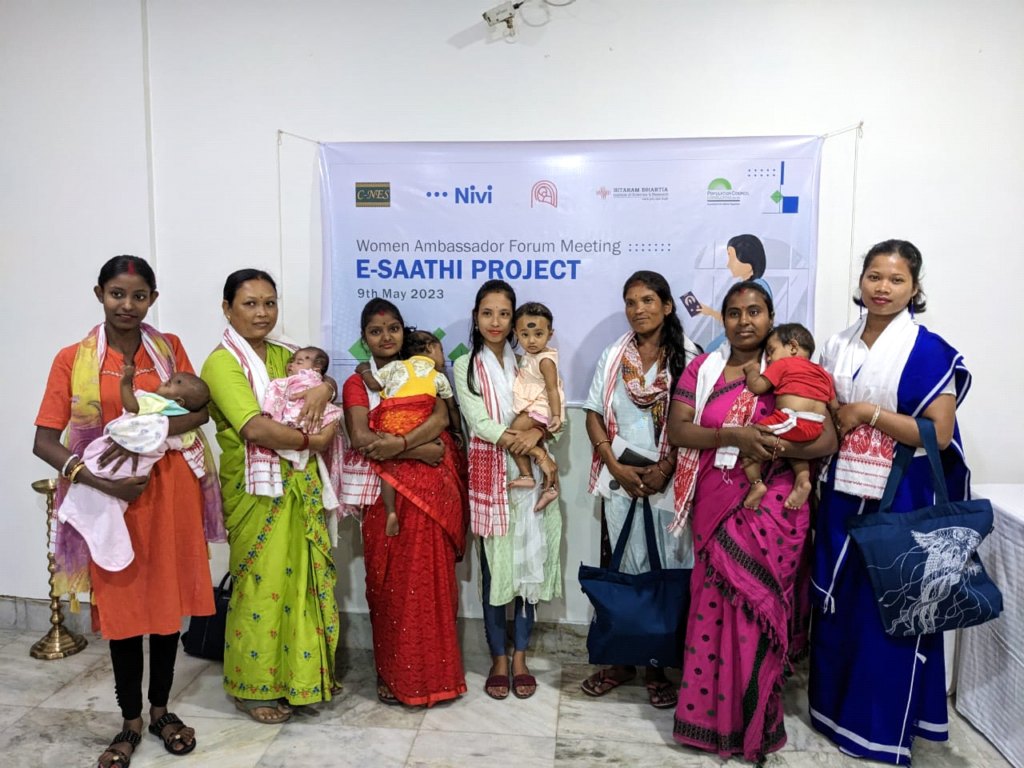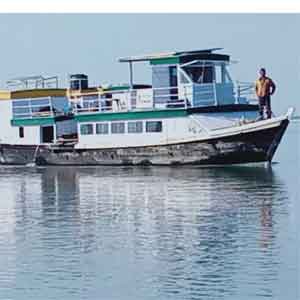
By the Brahmaputra (Vol: 60)
By the Brahmaputra (Vol: 60)
C-NES Newsletter
(April – June 2023)
C-NES and – askNivi- Project
e-SAATHI (Strengthening ANC/PNC via AskNivi Tailored Health Information, referrals, and follow-up) is a coalition of Population Council Consulting (PCC), in partnership with Nivi India and Sitaram Bhartia Institute of Science and Research (SBISR), in collaboration with the Federation of Obstetric and Gynecological Societies of India (FOGSI) and the Centre for Northeast Studies and Policy Research (CNES). The e-SAATHI has initiated a pilot chat-based digital maternal health (MH) support system in Assam. e-SAATHI builds partnerships based on a proven digital solution for promoting women’s autonomy over their reproductive health seeking behaviors, enabling self-care, and facilitating access to quality MH information and services across the pregnancy-postpartum continuum; thereby to contribute to the reduction in maternal and early neonatal mortality. The initiative proposes to equip pregnant women in the state with essential MH information, provide access to quality private and public MH services, for a safe and respectful MH journey (early pregnancy to 15 weeks postpartum). The initiative also aims to empower public and private providers, local digital and traditional media outlets to raise awareness on locally available MH services.
In this context a Women Ambassador Forum Meeting was held on 9th May 2023 at Hotel Blu Moon, Guwahati. Dr. Jitender Nagpal and Swapnil Rawat from Sitaram Bhartia Institute of Science and Research, New Delhi , Dr. Sowmya Ramesh , Ashita Munjral and Namrata Goswami from the Pop Council Consulting Pvt Ltd, New Delhi and Ashok Rao,Mousumi Duwara , Himashri Saikia, Satyam Sarma and Bhaswati Khaund Goswami from the Centre for Northeast Studies Team, Assam (C-NES) were present at the meet.
Seven women (pregnant and post-partum women with their children) ambassadors were invited for the launch of 1st WAF meeting. Dr. Sowmya Ramesh and Dr. Jitender Nagpal elaborated the e-SAATHI project and the role of WAF members in the project. The qualitative questionnaire with the WAF members was discussed. The questions were explained to the mothers in Assamese language also.As token of appreciation, a gift consisting of a bag and a water sipper, some play toys for the kids were given to the WAF members.The meeting ended with distribution of certificates and gift token to all the WAF team members.
C-NES at C20 Inception Meet
Civil 20 or C20 is one of the official engagement groups of the G20 since 2013. C20 provides a platform for Civil Society Organizations (CSOs) around the world to bring forth a non-government voice to G20. Civil20 India 2023 envisions a world where individual, family, society, market and state can supplement each other rather than engaging in conflicts. C20 India 2023 thus envisages an active participation of CSOs which not only includes working in the sphere of socio-economic development but also promotes adherence to human values and virtues.
The Inception Conference of C20 India 2023 was held in Nagpur on 20-21 March, 2023 at Radisson Blu Hotel. This was a multi-partner initiative and the C20 India Inception Conference saw the presence of high level national and international experts, academicians, Civil Society Organizations (CSOs) and policy practitioners including senior government officials. C20 India 2023 Inception Meeting was an opportunity to highlight the positive role played by civil society in all spheres of life and how their activities have contributed to the overall development of society along with formulating a value system that is in line with Indian culture and tradition.
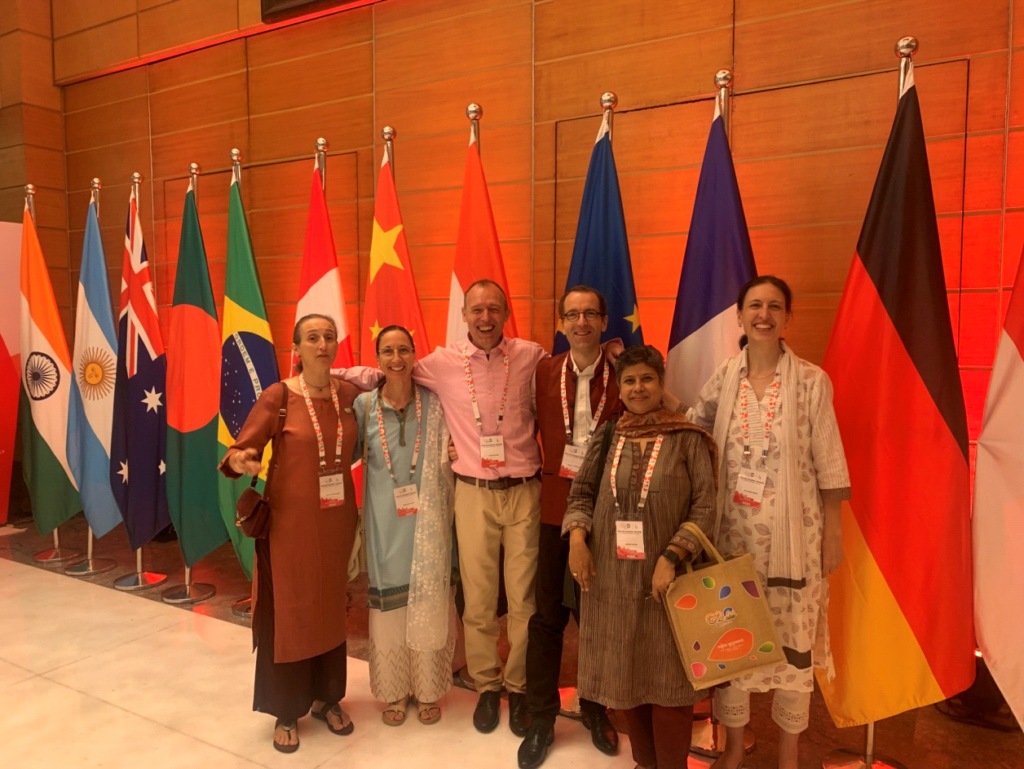
Bhaswati Goswami, Communications Officer, C-NES (second from right) was present as a participant of the Inception Conference and actively took part in all the sessions. She was part of the following working groups- Sustainable & Resilient Communities: Climate, Environment and Net Zero Targets and Gender Equality and Disability (GED). There are 14 Working Groups which have been deliberating on their respective themes through regular meetings. In this Inception Conference; experts discussed the themes of various Working Groups.
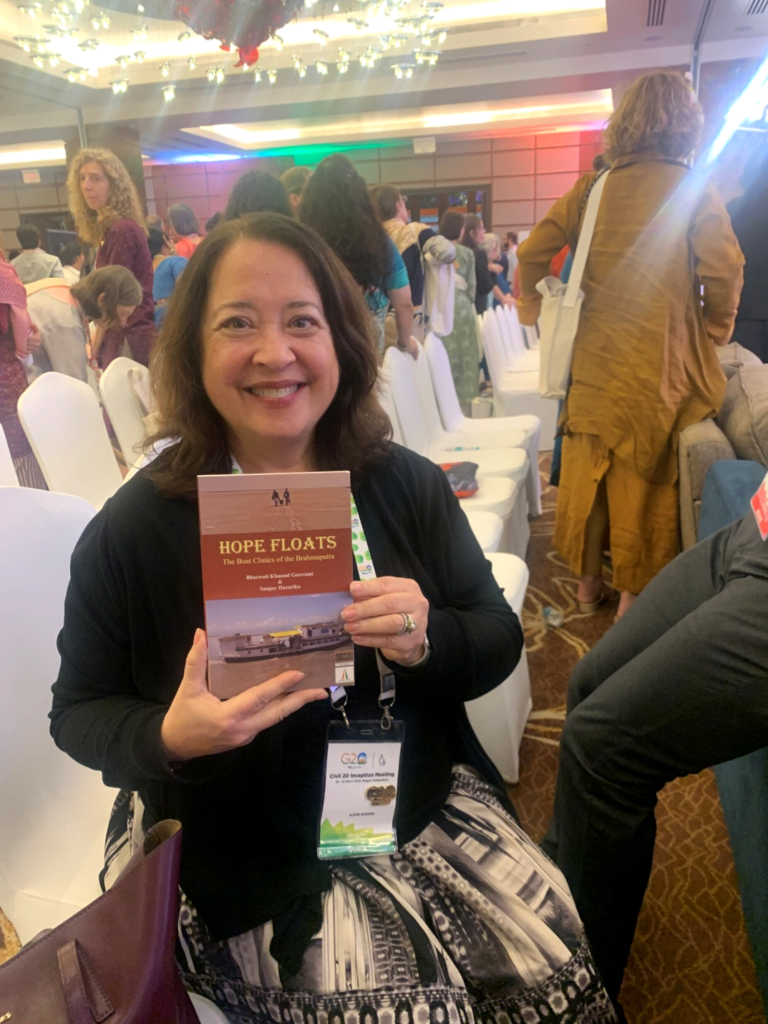
Alison Lynn Richards- Director, Intel Corporation was presented a book on the Book Clinics, “Hope Floats- The Boat Clinics of the Brahmaputra”
C-NES in W20 event

The Indian delegation to the W-20 under G20 includes representatives from civil society organizations, academia, and the private sector. Some of the key policy recommendations put forth by the W-20 India engagement group include the need for gender-sensitive budgeting, promoting women’s entrepreneurship, increasing access to affordable childcare, and enhancing women’s access to digital
The W-20 (Women 20) is an engagement group that was created in 2015 to promote women’s economic empowerment and gender equality within the G20. The W-20 brings together women leaders from G20 countries, women entrepreneurs, and civil society organizations to develop policy recommendations for the G20 on issues related to women’s economic participation, financial inclusion, and access to education and training. The W-20’s objective is to ensure that women’s economic empowerment is a central part of the G20’s policy agenda.
technologies and platforms. Women-led development is a key principle of the W-20, recognizing that women’s participation and leadership are critical to achieving sustainable and inclusive development. Women’s empowerment is crucial for sustainable development, as women make up half of the world’s population and are key contributors to economic growth and social progress.
Bhaswati Goswami, Communications Officer, C-NES, attended the W20 Conference,‘Women Power’ in ‘Women Led Development’ hosted by Pune’s Maharshi Karve Stree Shikshan Samstha’s School Of Fashion Technology (MKSSS’s SOFT) and affiliated college of SNDT Women’s University, Mumbai, on the 7th and 8th of April 2023. In its most inclusive structure of W-20 India, SNDT Women’s University is an educational partner with W-20 and has officially announced selective institutes under its umbrella to host the W-20 under G20, 2023 conference in India.
The legacy of Maharshi Karve Stree Shikshan Samstha (MKSSS), spanning 126 years, and SNDT Women’s University, with a national presence and a remarkable 106-year history, both founded by the esteemed Bharat Ratna Maharshi Dhondo Keshav Karve, deserve recognition for their significant contributions to women’s empowerment through education. These most contributing organizations are coming together to make W-20, under G20,2023 Pune conference the most effective.

Goswami(sitting extreme right) was a panelist in the session, “Grassroots leadership” where she shared her experiences from the field where women beneficiaries have taken a leading role in promoting community health including family planning and maternal health and overall community upliftment mentioning the role of the Boat Clinics in bringing about this change in gender upliftment in the riverine communities that they deliver service to.
Visitors
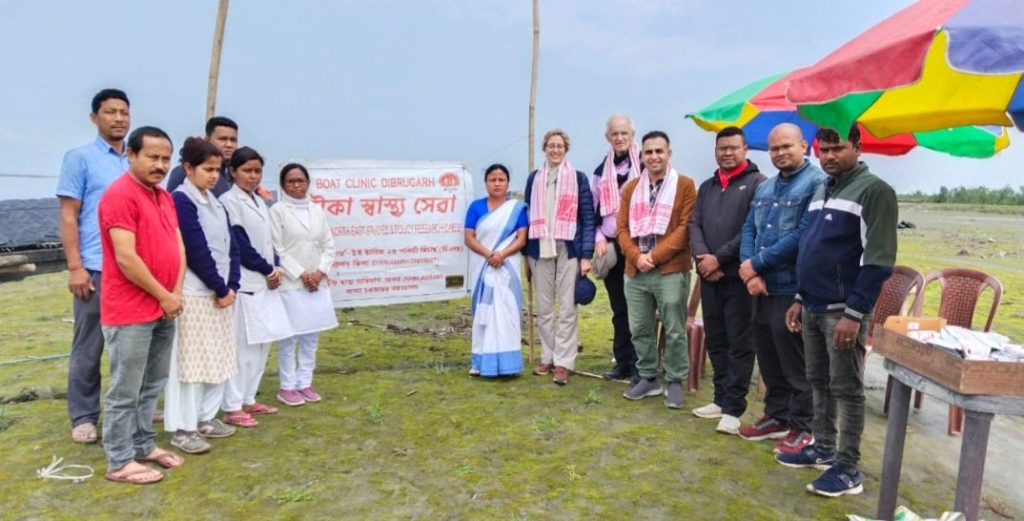
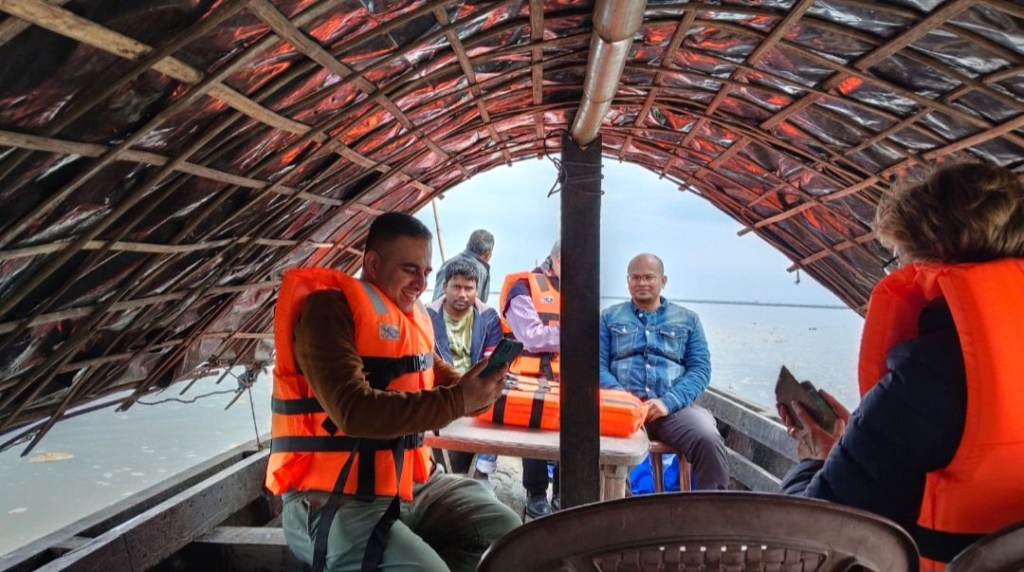
Dr. Kaustubh Kumar Deka. Assistant Professor, Department of Political Science.accompanied the Dibrugarh Boat Clinic team on a health camp on 31 st march 2023. He tweeted- ‘It was a real privilege to witness the stellar “Boat Clinic” initiative by C-NES where boat Borne medical clinics reach remote riverine communities, living on many island and Chars of Brahmaputra in Assam. Here is the sight of Amsung Dadhiya island village, vicinity of Dibru Saikhowa aquatic biosphere. The clinic will camp here for three days before moving on to the next island village…. A most effective model”
A Week with The Majuli Boat Clinic Team
Dr Kate Thompson
2nd April 2023: Taking a sabbatical from my role as a military GP from the UK, I have spent the last 9 months living in India. During this time, I wanted to volunteer for interesting and worthwhile health organisations. I read about C-NES whilst searching for opportunities and was fascinated reading about the boat clinic in Assam, delivering healthcare to remote communities along the Brahmaputra. The C-NES team based in Guwahati were incredibly helpful with gathering local permissions and plans were made for me link up with one of their teams on an expedition. On the 1st April, in the midst of a heavy rainstorm, I arrived in Jorhat. After introductions and preparations, we travelled from the city of Jorhat to the boat and a warm welcome awaited. The boat felt like home and the team seemed like a family.

The medical team consisted of one doctor, two nurses, one pharmacy technician, one laboratory technician, a community support worker and the DPO. During the expeditions, the medical team live onboard with the boat crew and together they set off along the Brahmaputra to serve the remote river islands.

I was fortunate enough to spend 6 days on the boat, moving daily from one location to the next. Once docked, the medical team would leave the boat and reach their target communities, either by tractor or on foot. Pre alerted by the community support worker, the villagers were ready for our arrival, greeting us warmly and eager to see the clinicians.

The clinical work was wide ranging from antenatal check-ups to chronic disease management, emergency cases and the occasional home visit. We used the limited equipment available and took histories and examined patients as feasibly possible. Spending several hours in each location, the team did not leave until everyone in the clinic had been seen, often consulting with more than 50 patients per session.

Some cases were straightforward, and some were complex. Some people were referred for further care and others were asked to return for review at the subsequent boat clinic visit. If they required a prescription, medications would be dispensed.

If laboratory tests were needed, the technician performed these immediately and results were reviewed by the doctor. Meanwhile, the ANMs had their own clinic base, reviewing antenatal cases and delivering vaccinations to children.

After a clinic we would head back to the boat and onto the next location. After work, we were spoilt with incredible Assamese food prepared by the boat’s chef.

On two of the evenings, the boat clinic team received visits from Pritam Kumar Das, Under secretary, health cum Zonal Director and Dhruba Jyoti Das, District Programme Manager, National Health Mission, Majuli District. I was humbled to learn how they had taken time out of their busy schedules to make the special visit and we discussed the local health needs and how the boat clinics support these.

The boat clinic really is an invaluable lifeline for thousands of remote populations. Running for many years now, it is a well-oiled organisation, and understands the many challenges of delivering healthcare. Their work is not easy or straightforward and requires and enduring commitment. I am in ore of their passion and dedication and am so grateful for the experience I gained from them.
About the Author: Dr Kate Thompson is a Military GP from UK who volunteered with the Majuli Boat Clinic in April 2023


Dr Thompson at a (girls) school at Majuli on 7th April 2023, speaking about the importance of education and prevention of child marriage.
Boat clinic: A unique health care model of Assam
by Jayanti Saha
In February 2023, I had the opportunity to visit several remote and underserved chars in the Morigaon district of Assam. I joined a dedicated boat clinic team as part of my field study for my Ph.D. thesis, aiming to gather knowledge about the role of boat clinics and the reproductive health of women living on the riverine islands of the Brahmaputra, locally known as chars. Chars comprise approximately 6% of Assam’s land area and are home to a population of over 3 million. Due to the frequent flooding, it is challenging to construct permanent healthcare facilities in these areas. As a result, boat clinics have become the sole means of accessing healthcare for the people residing on the chars of the Brahmaputra.
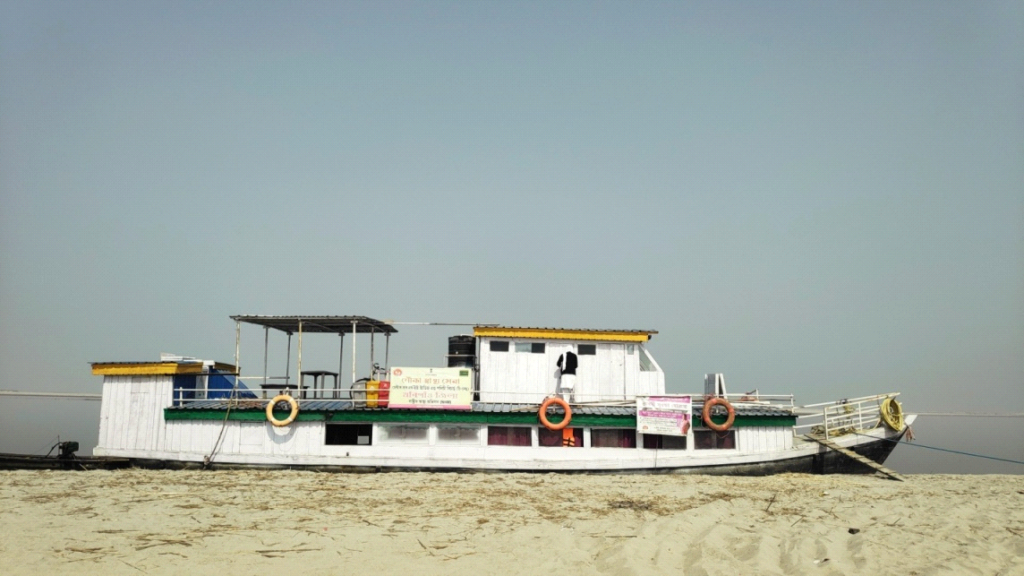
The boat clinic initiative was launched by the Centre for North East Studies and Policy Research (C-NES) in June 2004-2005 with the goal of providing healthcare services to the char population. Initially focused on immunization for children, pregnant women, and new mothers, as well as treatment for vulnerable adult groups, the initiative expanded its services through a public-private partnership with the National Rural Health Mission in 2008. Currently, there are 15 boat clinic units operating in the chars of 13 districts in Assam. These clinics provide essential healthcare services, including routine immunization, family planning, screening for communicable and non-communicable diseases, and addressing vector-borne diseases. Equipped with OPD, laboratories, and pharmacies, the boat clinics bring healthcare services directly to the inhabitants of the chars.
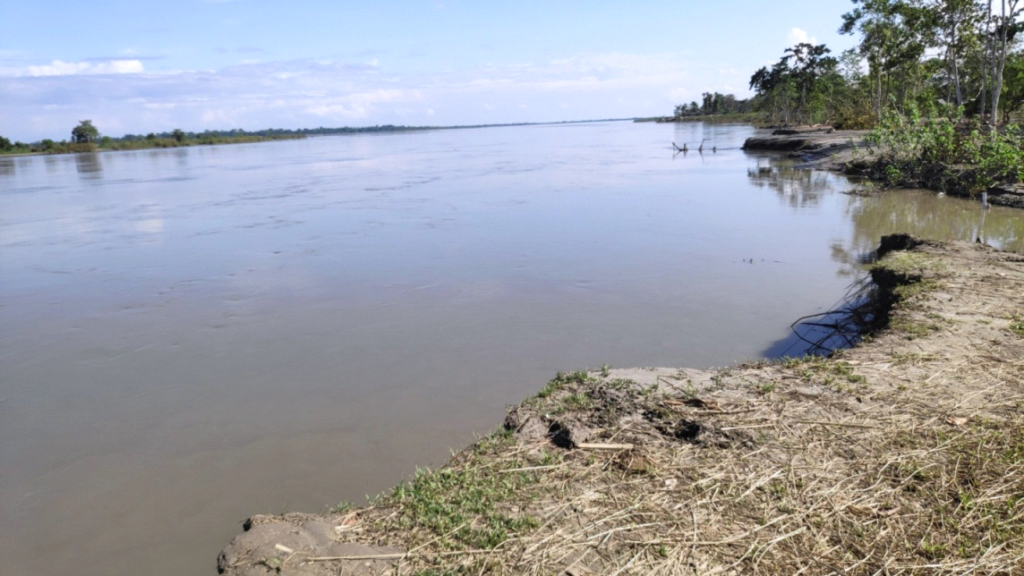
During the initial day of my field visit to the chars, I was astonished by the dynamic process of erosion and accretion that takes place in these areas. This process leads to the formation of sandbars, which emerge as islands within the river channel. However, I also found that displacement resulting from recurrent floods poses a significant problem in the char areas. The residents of the chars endure multiple waves of displacement throughout their lives due to river erosion. One woman shared, “In the past ten years alone, my family has changed residences four times, resulting in our separation from our land, assets, belongings, and social networks.” This situation raises the question of why people choose to continue living in the chars despite the challenging conditions they face. The reason people persist in living in the chars is primarily due to the lack of viable alternatives. The inhabitants have limited resources and few options for relocation. Despite the adverse circumstances, the chars remain their only home, and they adapt to the challenges in order to sustain their lives.
After a one-hour boat journey, we walked about three-kilometers to reach a remote char village called ‘Bhangkoura char’. This experience truly exposed me to the predicament faced by the char population. Walking on the sandy terrain was arduous, and the sun was directly above us at noon. In that moment, I couldn’t help but wonder how the dedicated boat clinic members manage to perform their commendable job year-round, encountering floods, storms, and extreme heat, all while carrying the heavy burden of medicines, vaccines, laboratory instruments, registers, and more. The healthcare providers demonstrate incredible resilience and determination as they traverse difficult terrains and weather conditions to reach the vulnerable population. Despite the numerous challenges they face, these providers ensures that essential medical support reaches to people living in underserved areas.



Boat clinic team members navigating through sandy terrain and agricultural fields to reach char villages
During the initiation of my field study, there were ongoing debates on the Assam government’s efforts to combat child marriage on one hand and address the issue of encroachment on forest and revenue land on the other. These factors contributed to users’ reluctance in visiting the boat clinic, further complicating the delivery of healthcare services. However, what fascinated me was the consistent ability of the boat clinic team members to earn the trust of the community and persuade them to utilize the services provided. I closely observed each member of the boat clinic team fulfilling various responsibilities related to healthcare service delivery. One crucial aspect of their work is conducting awareness campaigns during health camps. These campaigns focus on specific topics such as the significance of healthcare and nutrition for women and children, strategies to combat malnutrition, self-care practices, scientific knowledge related to health, adolescent health, and gender awareness. By actively engaging with the community through these awareness campaigns, the boat clinic team endeavors to educate and empower individuals regarding their health and well-being. Through these awareness meetings, the boat clinic team sought to educate the community about the negative impacts of child marriage and the essential role of routine health check-ups during pregnancy. By disseminating this information, they aimed to promote better health practices and empower women to make informed decisions regarding their reproductive health.





Providing healthcare services in such challenging terrains requires effective teamwork, as it is not feasible to establish permanent facilities in areas where staff members lack a permanent place to render services. During my field visit, I observed a remarkable collaboration among the boat clinic staff, villagers, ASHA workers, and Anganwadi workers in managing suitable locations for health camps. The boat clinic team worked closely with the local community, including ASHA workers and Anganwadi workers, to identify and set up temporary sites for the health camps. Despite the absence of permanent structures, they collectively managed to create a functional space to deliver healthcare services. This collaborative effort demonstrated the dedication of the team, as well as the active participation and support from the villagers. Furthermore, the boat clinic team exhibits immense bravery and selflessness during times of flooding. They put their lives at risk to provide assistance and healthcare services to the affected population. The Brahmaputra river experiences a significant increase in water levels during the monsoon season, posing additional challenges and dangers. Despite these hazards, the team remains committed to reach and support the underserved population in such difficult conditions. This unique healthcare model serves as a phenomenal example of reaching underserved populations. It provides hope to all those residing in challenging terrains, demonstrating that access to essential healthcare services is not limited by geographical barriers. The collaborative efforts of the boat clinic team, along with the support from the local community, create a beacon of hope for improving healthcare outcomes in such marginalized areas.
About the Author:
*Jayanti Saha is a PhD scholar at the Centre of Social Medicine and Community Health, School of Social Sciences, Jawaharlal Nehru University, New Delhi.
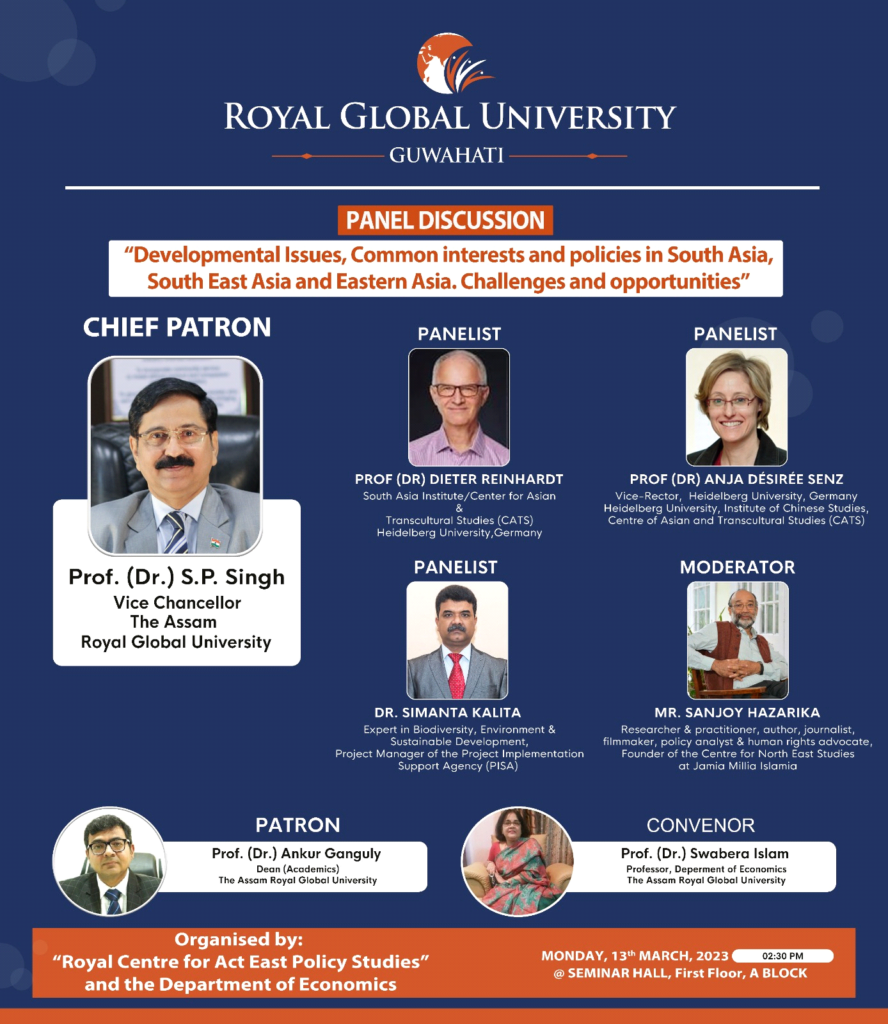
From The Field:
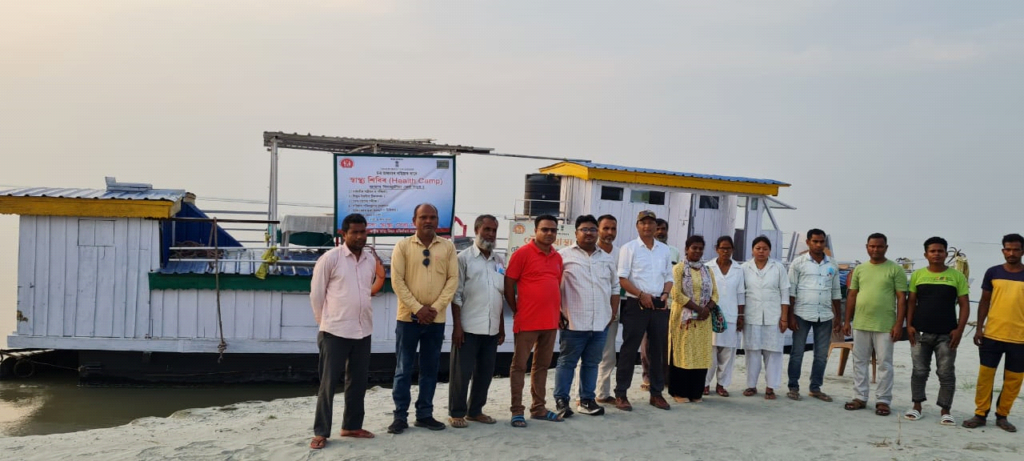
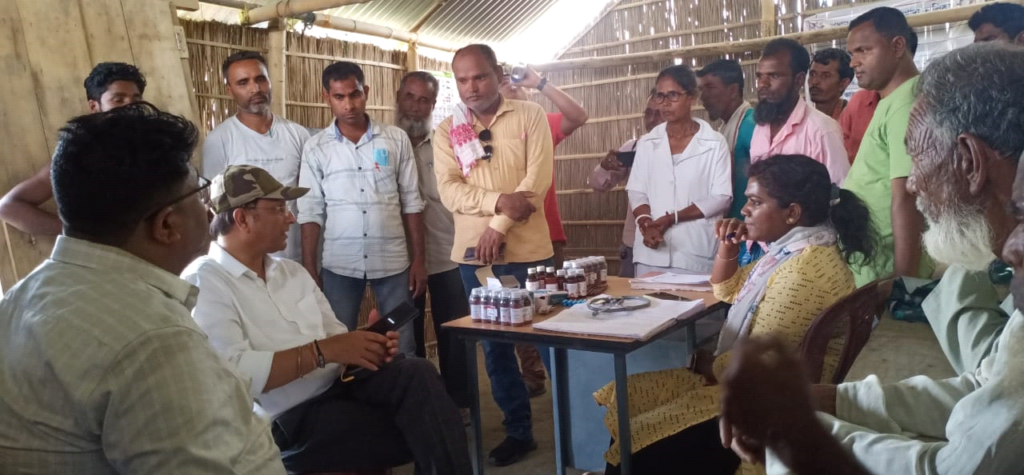
The Deputy Commissioner of Morigaon Devashish Sharma paid a visit while a camp was in session at Kasemor Char(Goribor char), by the district Boat Clinic unit on 5 May 2023. He was accompanied by Swaraj Bharat Legachu, Circle Officer of Lahorighat. The duo interacted with the staff and inspected the records/report of boat clinic. They also interacted with the beneficiaries on health issues like home deliveries and referral boat for pregnant women. The visitors expressed their appreciation of dedicated service of boat clinic.


The Zonal Director Pritam Kr. Das visiting the Majuli Boat Clinic SB Nahor at Kamalabari ghat. He monitored the condition of the boat, safety, and its maintenance. The team had a discussion with him on key issues relating to the service areas, challenges and various boat maintenance issues. He checked the registers and equipments in the boat and suggested few valuable points for maintaining documentation and records for better performance.
Family Planning Initiative
“SHARATHI BOAT” a two-day initiative under Mission Parivar Bikash was launched by the Bongaigaon Boat Clinic supported by NHM DHS Bongaigaon on May 15th 2023. The basic goals of the programme was to sensitize the riverine community about family planning.The boat moved with a set of loudspeakers with informative recordings covering all island villages in Bongaigaon district. The District Programme Manager (DPM), Accounts Manager and Family Planning Coordinator were present at the launch actively participated in the programme.
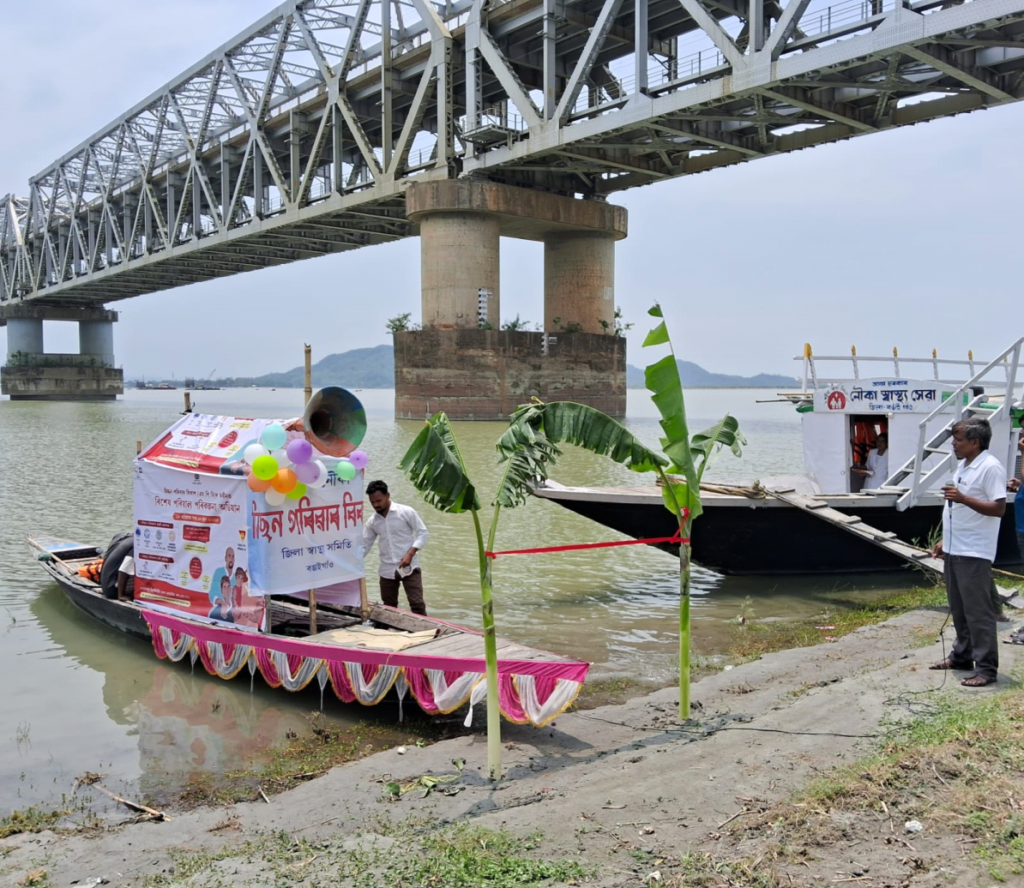
—
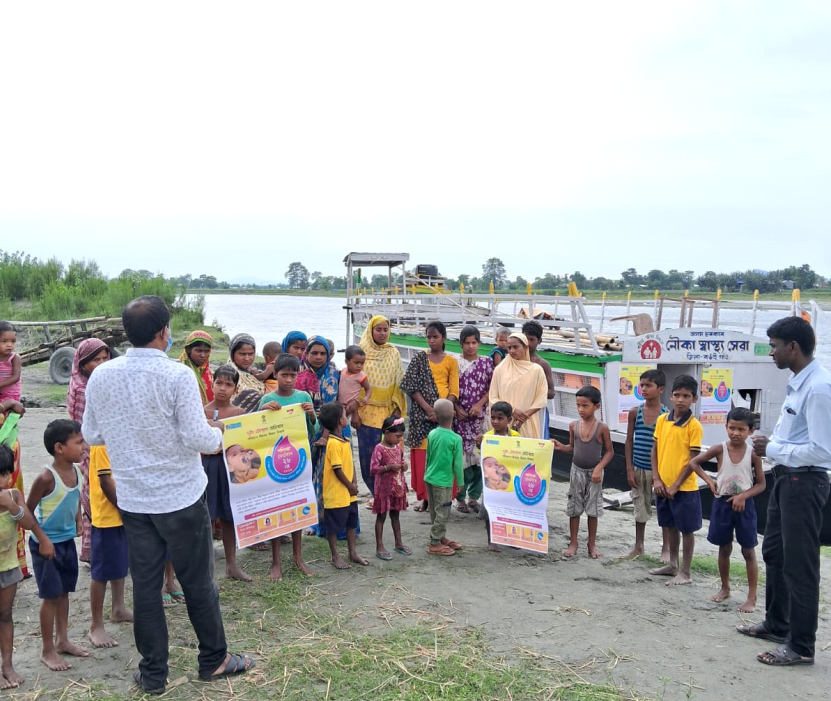
The Bongaigaon Boat clinic team sensitizing beneficiaries in the island villages( char areas) about the second round polio immunization campaign on 27 May 2023. Awareness sessions are an important component of the boat clinic camps
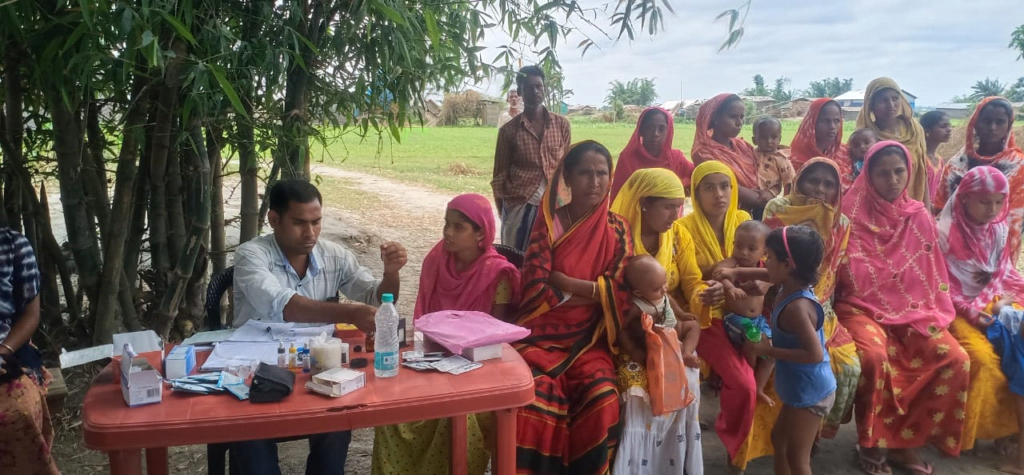
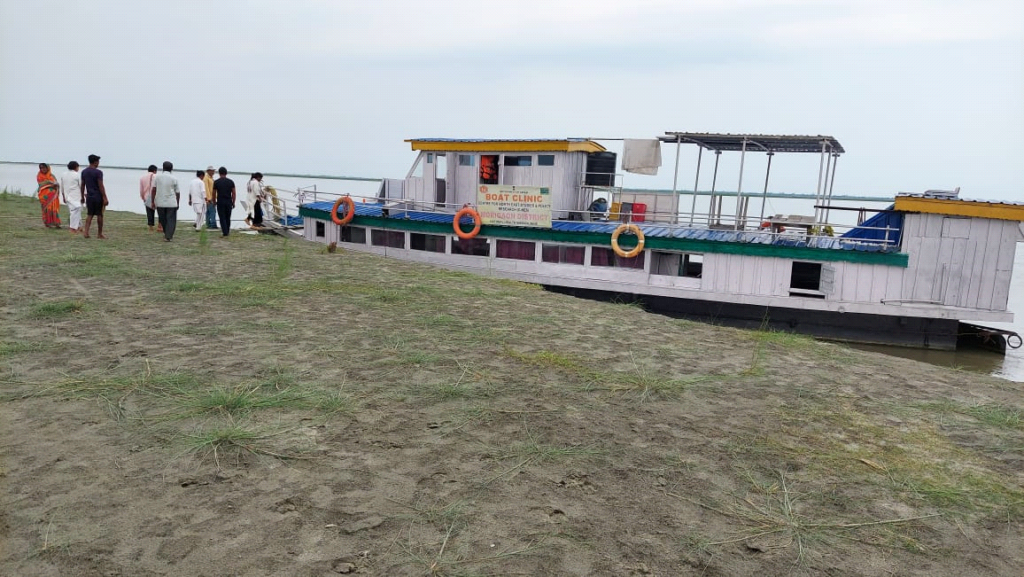
A health Session at Morigaon’s Meetmari char on 17th May 2023 with the Boat Clinic anchored alongside, a regular sight.
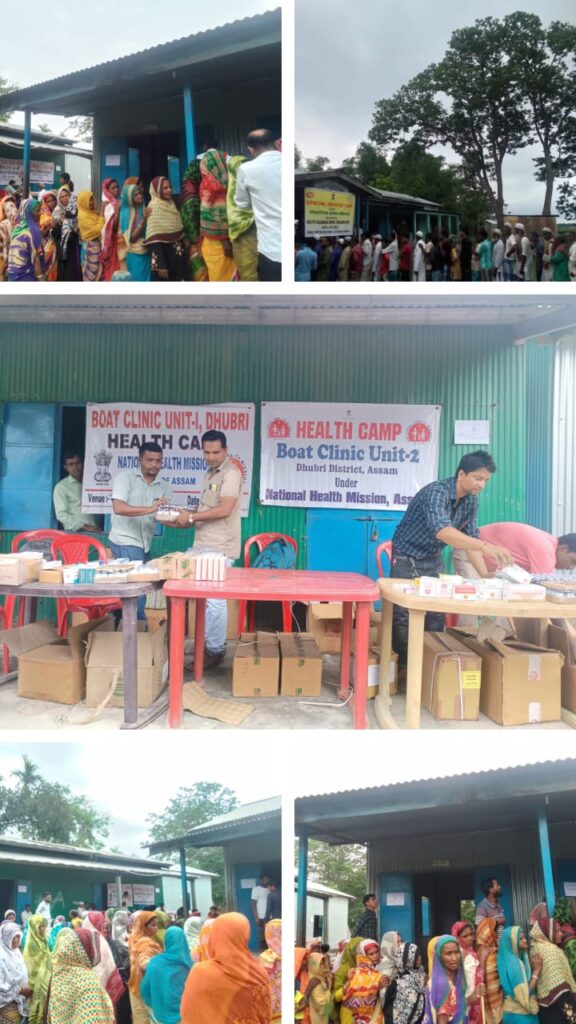
Swasthya Sewa Abhijan at Satianbari L.P School where both units of the Dhubri Boat Clinic participated. Over 700 beneficiaries were given OPD checkups and 32 ANCs conducted
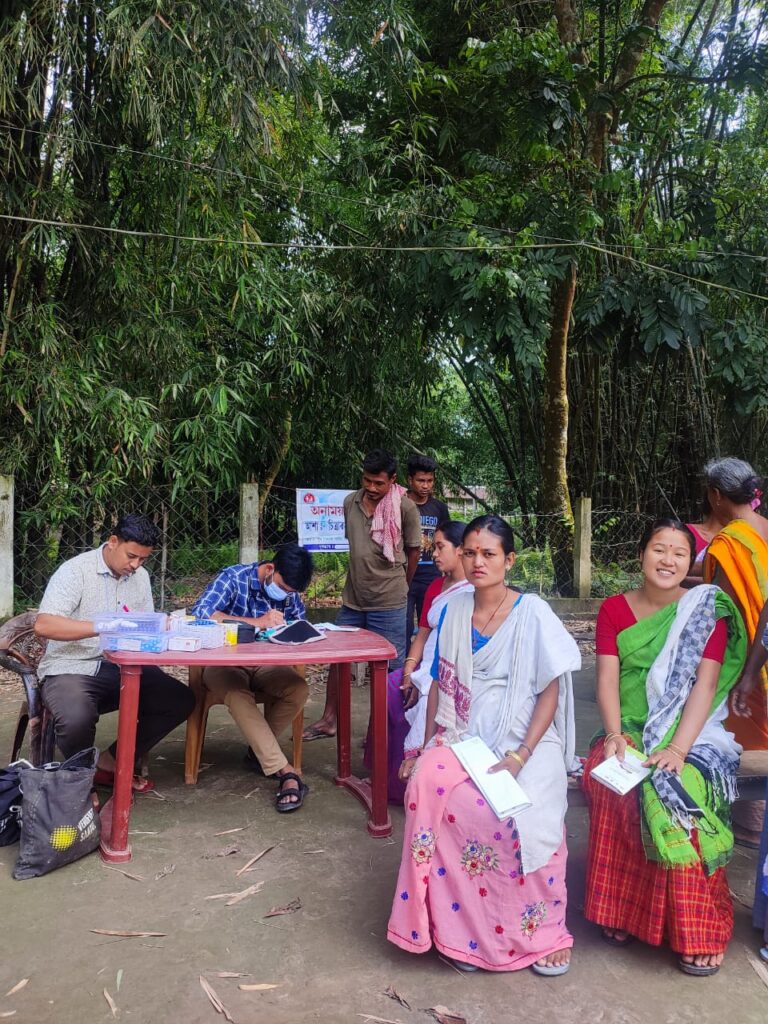
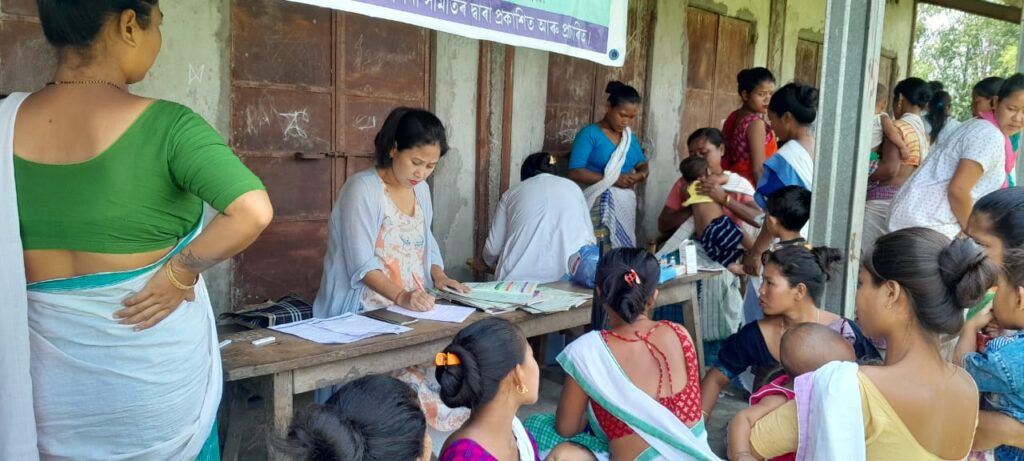
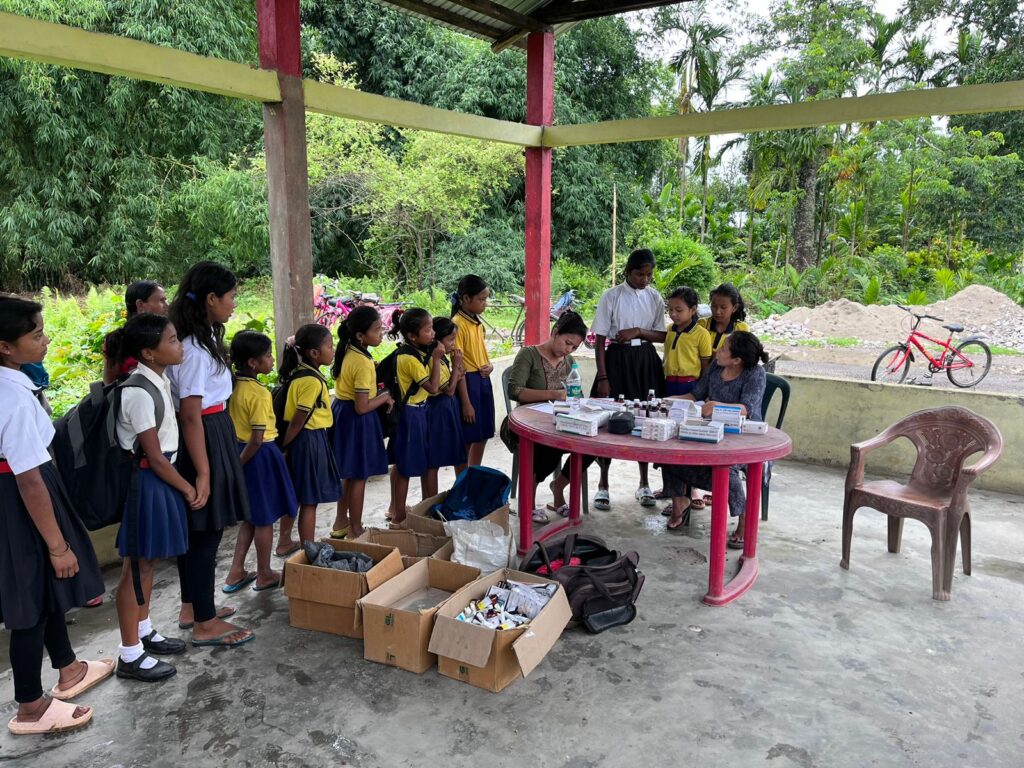
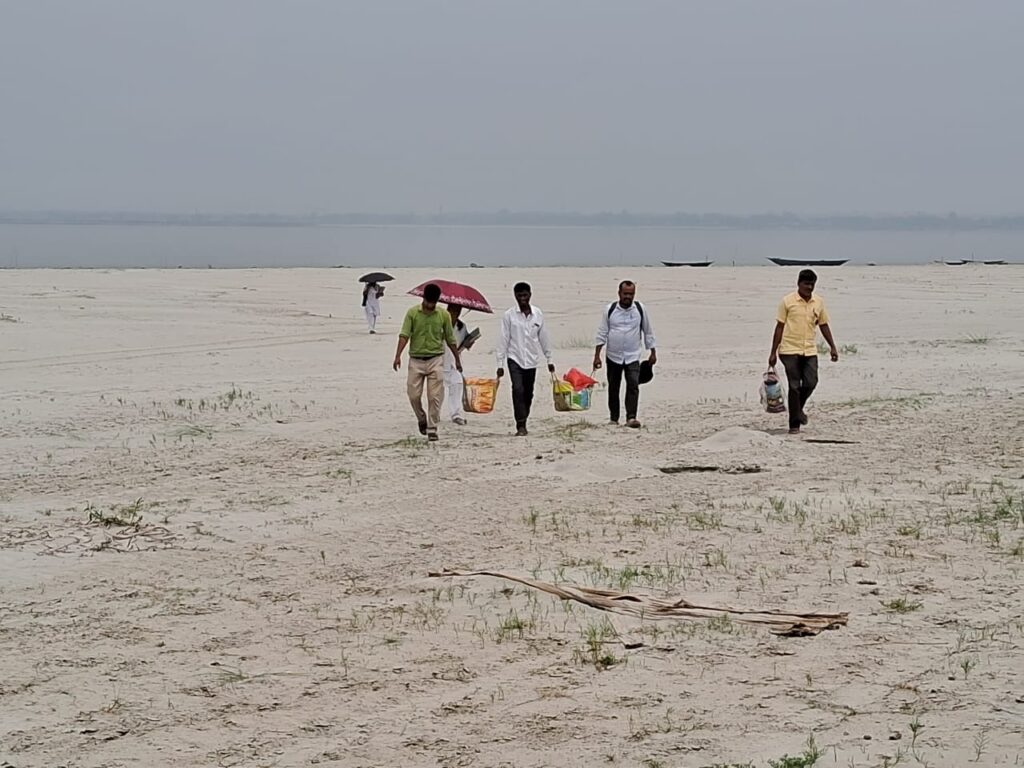
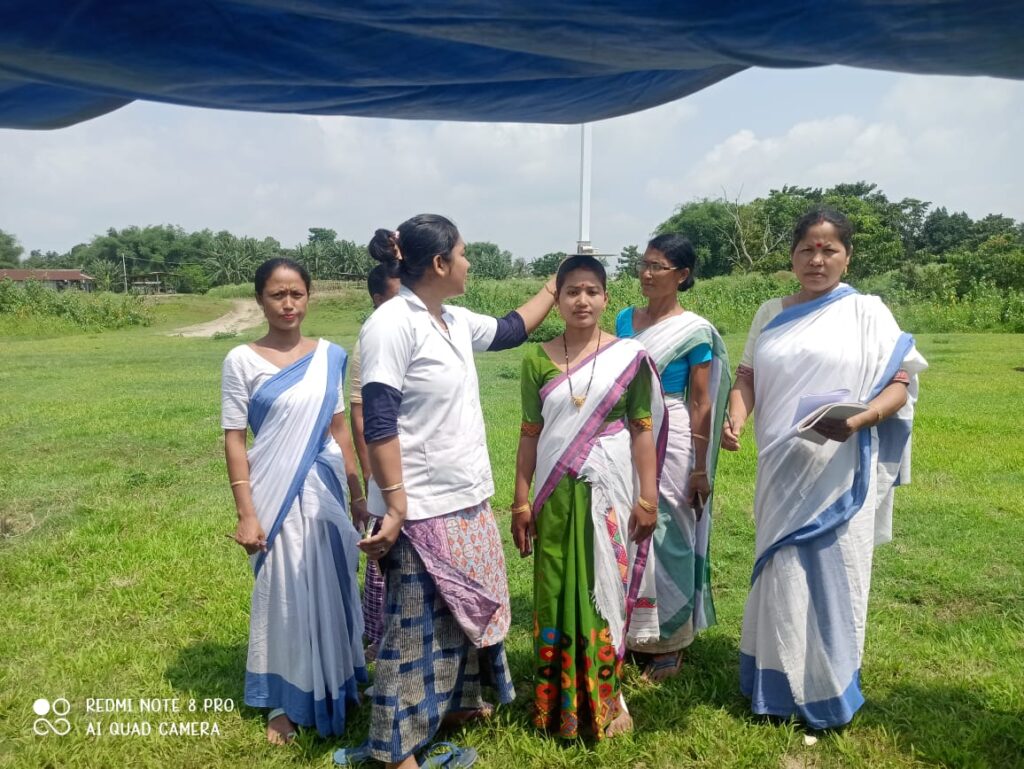
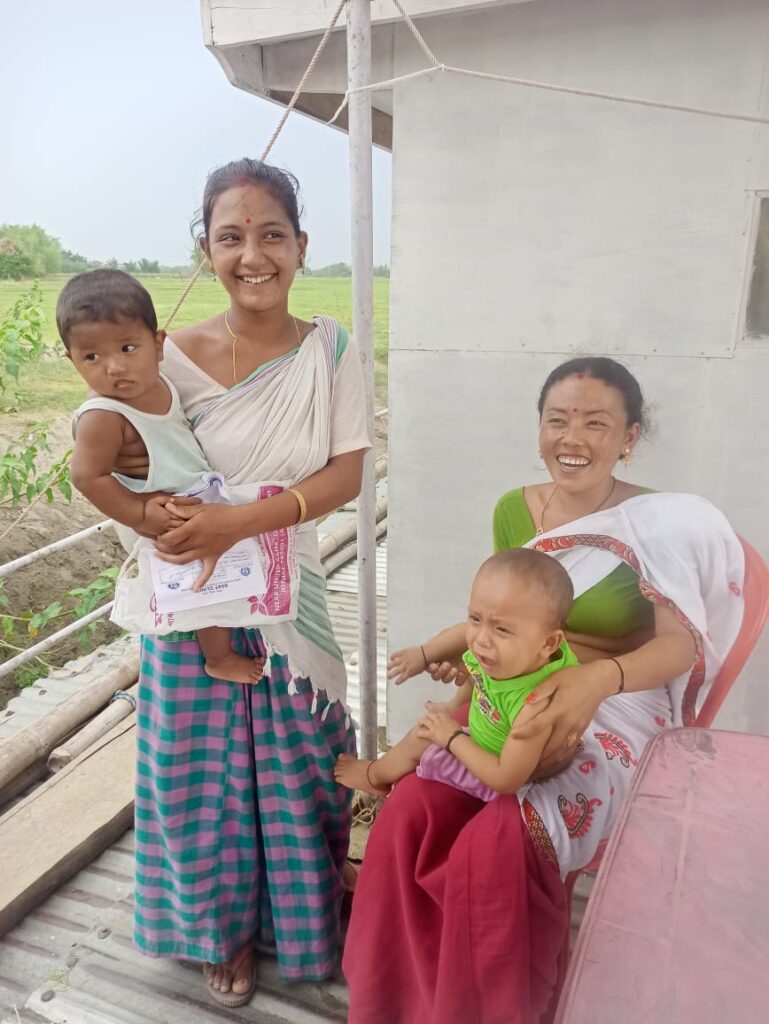
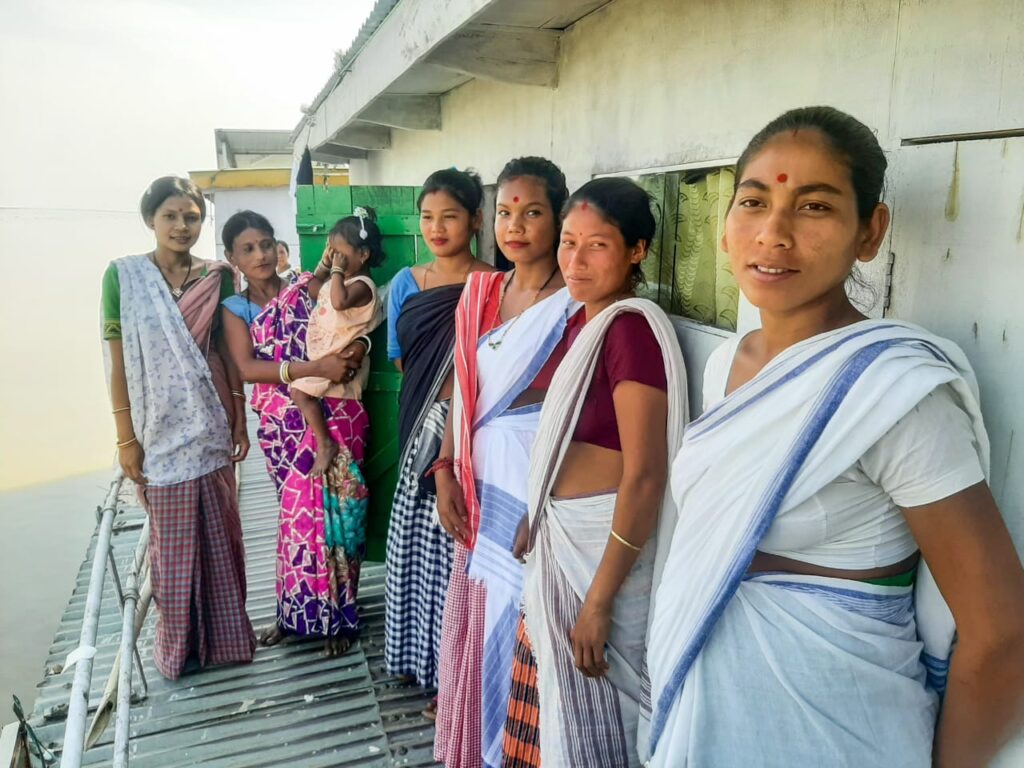
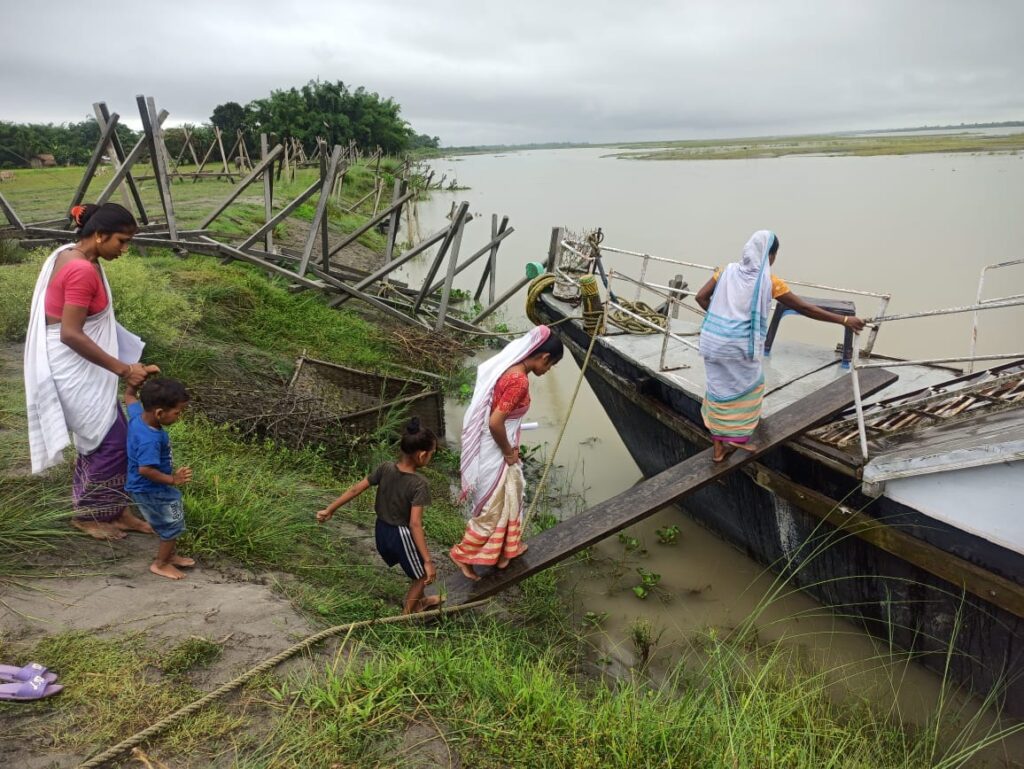
Beneficiaries proceeding onboard for a camp conducted at Subidha and Buha sapori, Majuli
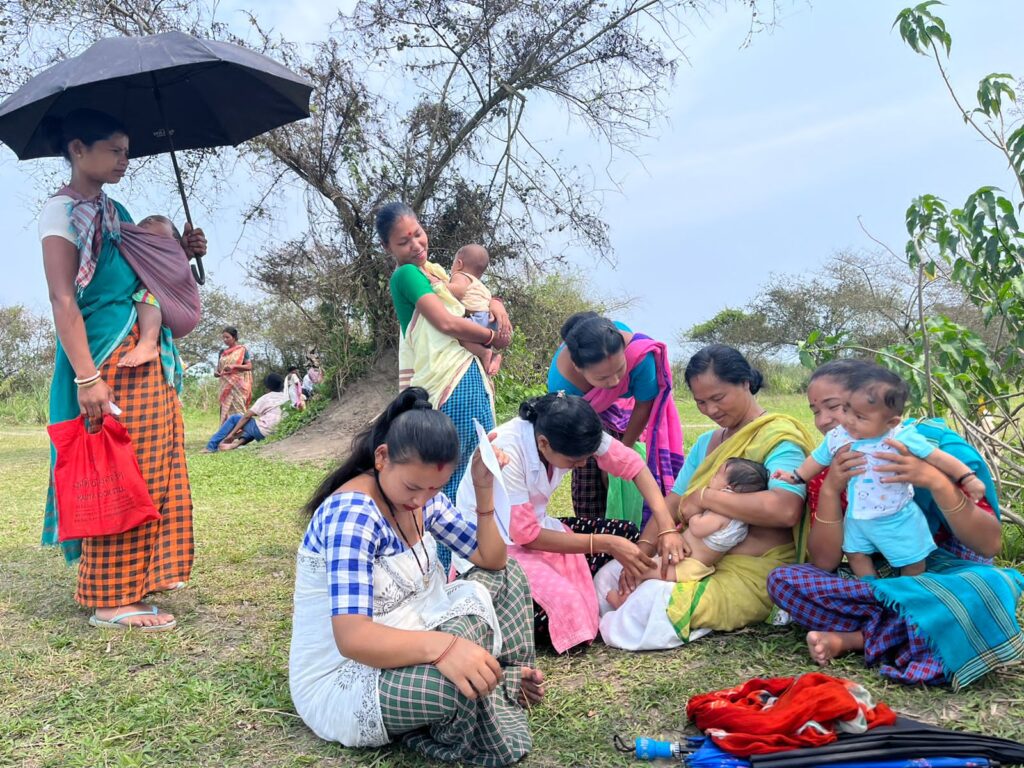
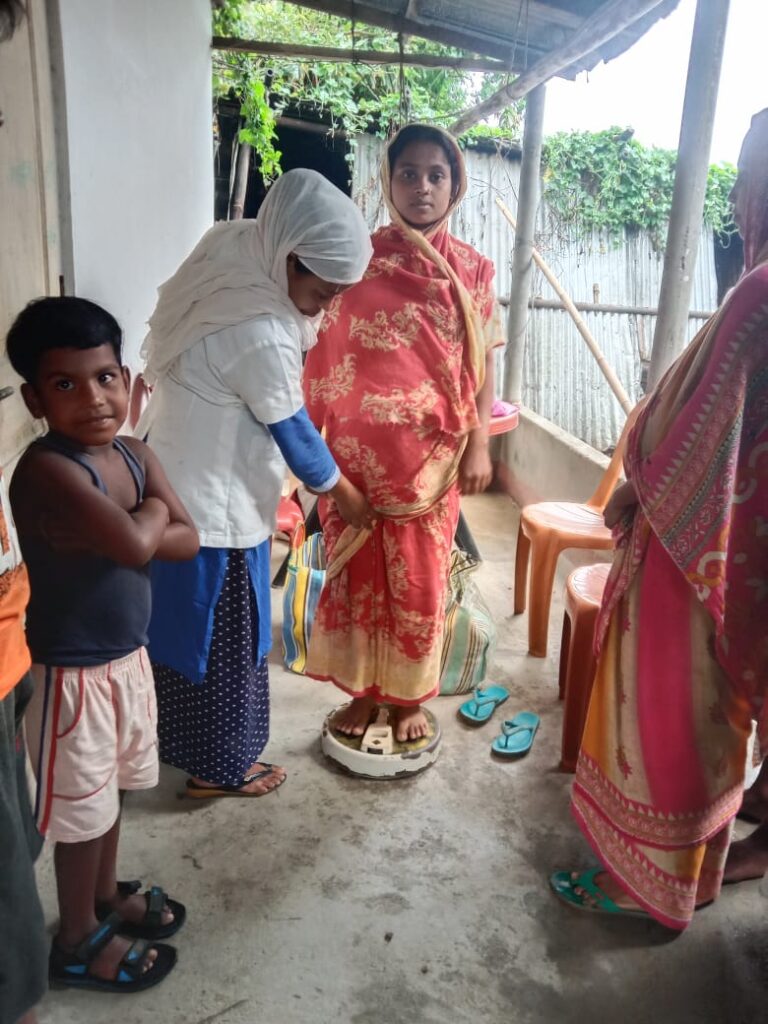
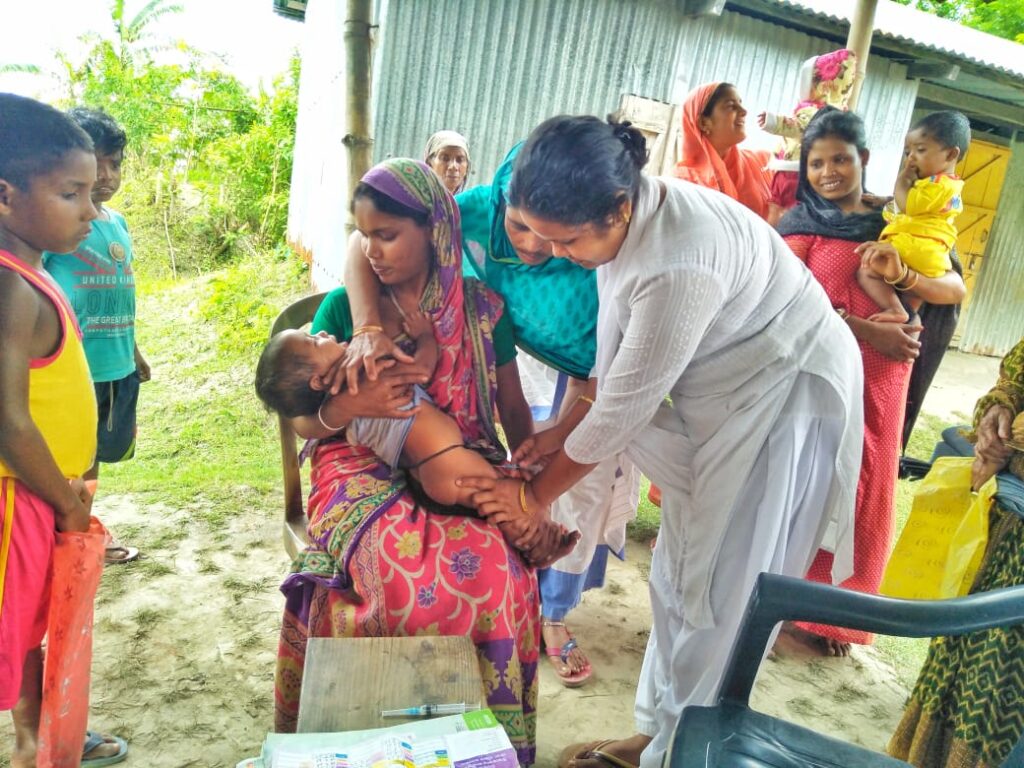
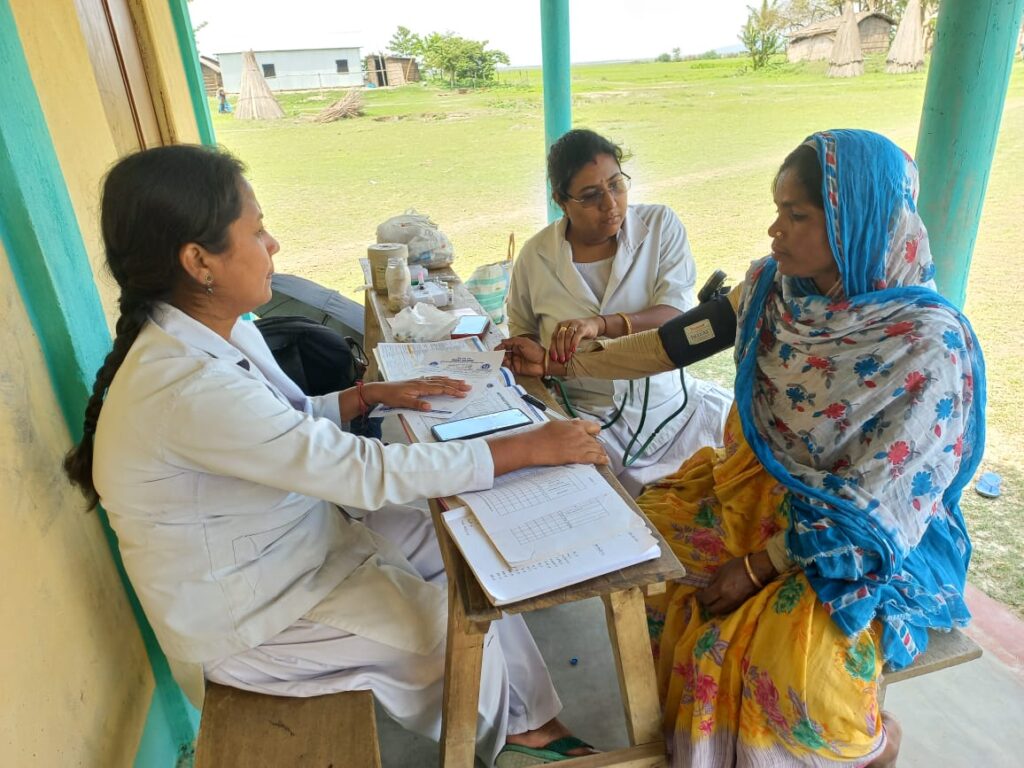
Our ASHAs in Action – Agents of change in community upliftment
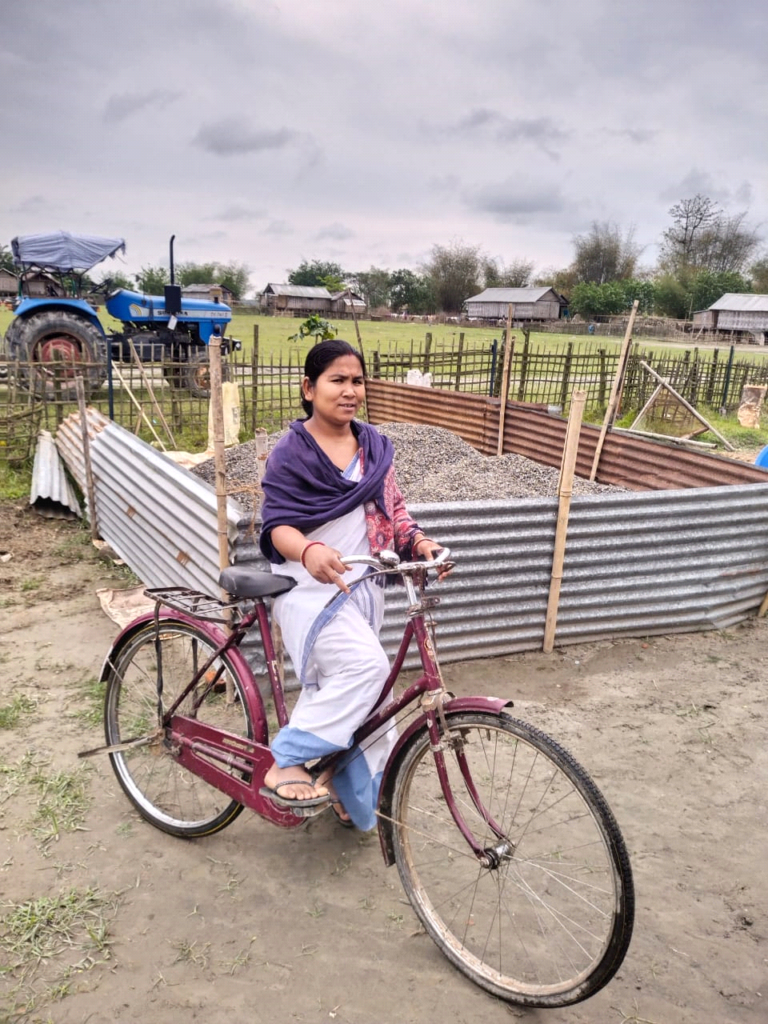

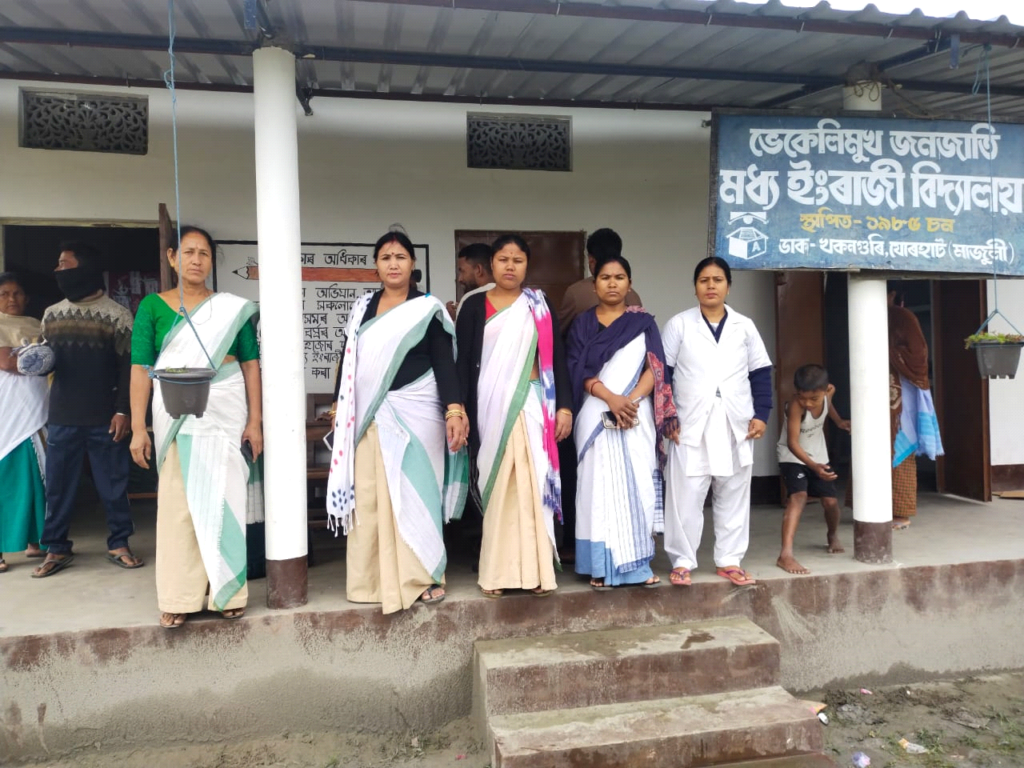
Akha Boat Renovation
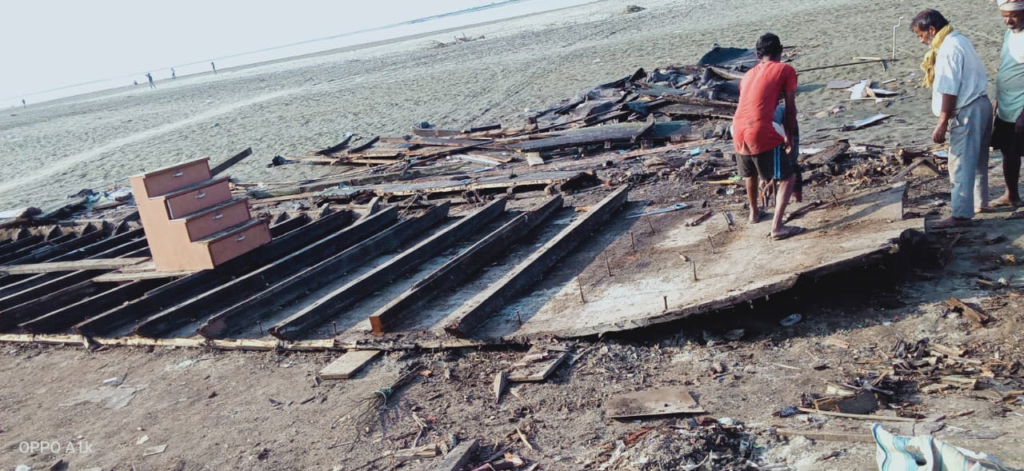
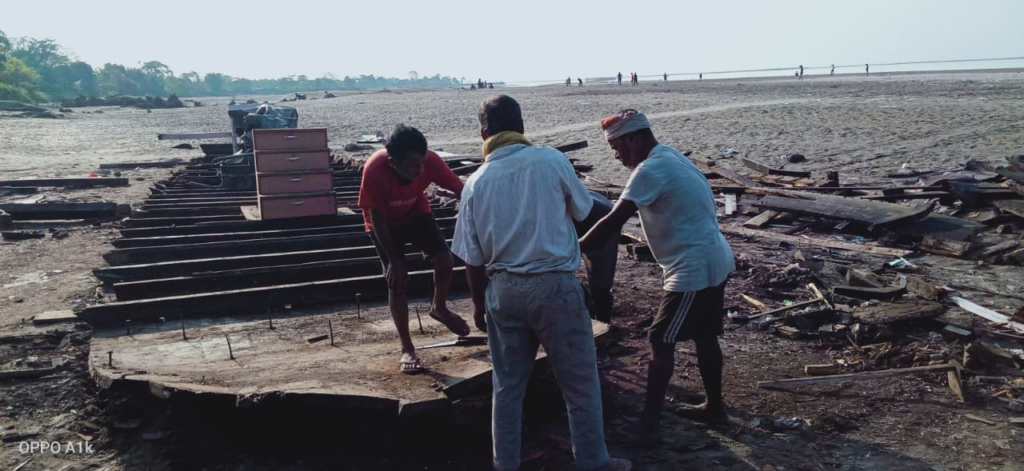

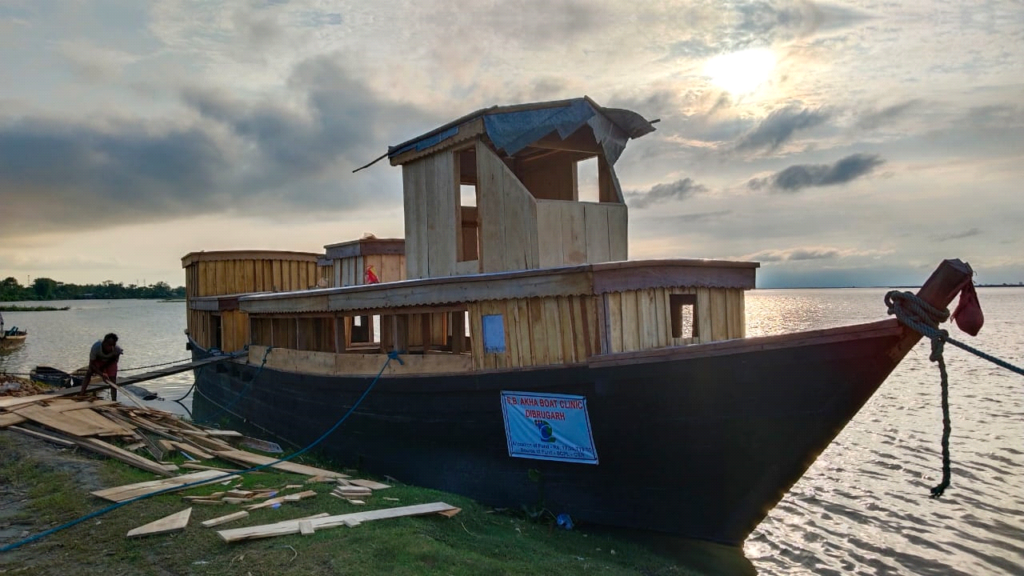
C-NES’ first boat clinic Akha built with a Worl Bank Award to C-NES in 2004 and servicing island villages in Dibrugarh district since May 2005, was lying in a state of disrepair since 2019. The Dibrugarh based Brahmaputra Cracker and Polymer Limited (BCPL), a public sector undertaking of the Government of India under the Ministry of Chemicals and Fertilizers, Govt. of India.has come forward renovate it as a CSR initiative. The entire process of fund release, monitoring and site visit where the boat is being built is under the DCs administration. The photographs(in stages) of the overhauling and renovation at Dibrugarh’s Maijan Ghat.


OIL supports repairing of “Shahnaz” Dhemaji Boat Clinic
Meanwhile that repairing of Dhemaji Boat “Shahnaz”, donated to C-NES by eminent economist- columnist Swaminathan Aiyar and named after his (late) wife has been completed. After lying unused for over two years, the Dhemaji Boat Clinic, was repaired and renovated with funds from Oil India Limited and has been delivering service since December 2022. DPO Boat Clinic Dibrugarh Bishal Saikia played a proactive role in the entire repairing. Photographs follow:
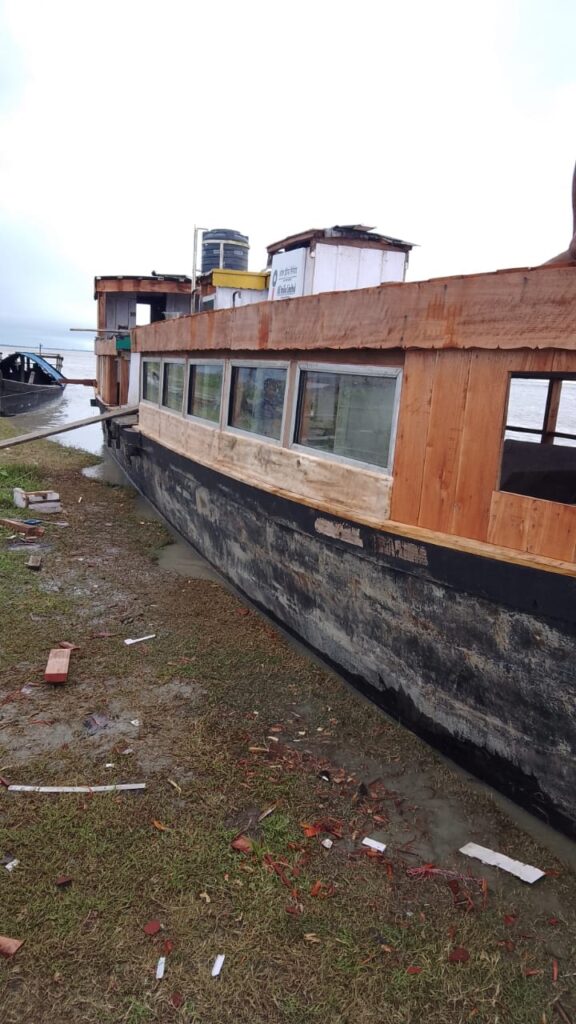

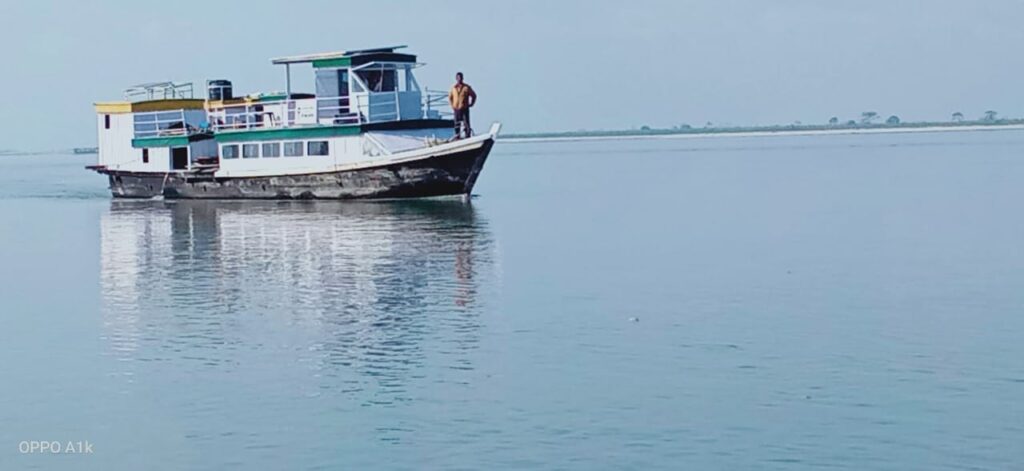
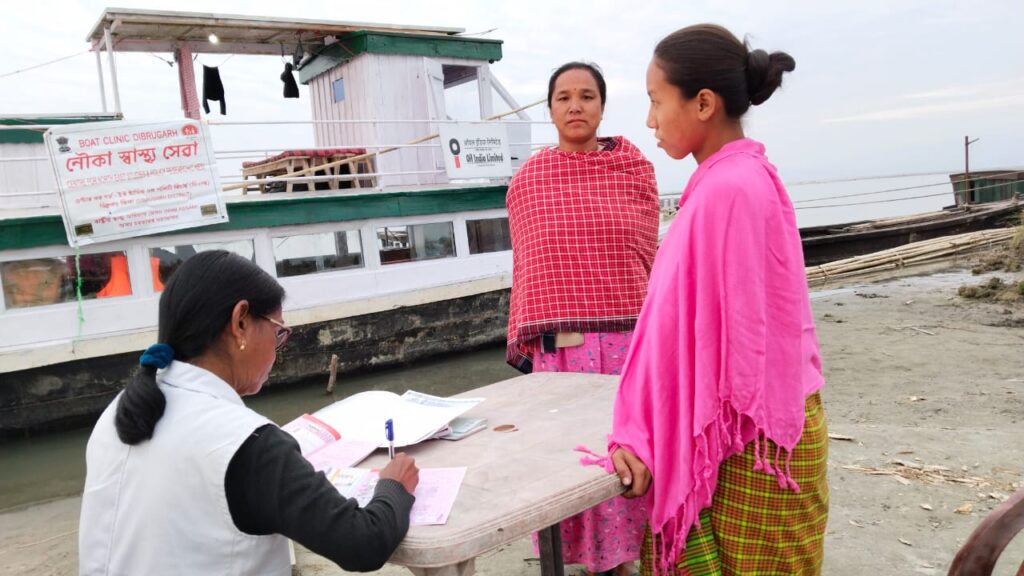
Media on Boat Clinic
Freelance Journalist Meenashi J visited the Boat Clinic at Kamrup in lower Assam and accompanied the health team to a camp on April 26, 2023 “Had an enlightening trip to Kaltali char. Extremely heartening to see the effort being taken to provide primary health services to the needy by C-NES”, she wrote on the Visitors Book.
The story was live on the British Medical Journal, The link and the story follows:
http://bmj.com/cgi/content/full/bmj.p906 https://www.bmj.com/content/381/bmj.p906.full?ijkey=z3fV6LKUMgfMzqd&keytype=ref&fbclid=IwAR0YgHXWR4CP6jQItF18h3VWQ3OICJPTVElOXsmQULLytY4OnOf8HqiTvaY
Boat clinics of northeast India: bridging health inequities in rural areas
Floating clinics are bringing medical services to the doorsteps of the marginalised inhabiting Assam’s riverine islands, reports Meenakshi J
Razaul Hauque and family are among the first in the queue, eagerly awaiting their baby’s next vaccination. “If we miss today, then we have to wait for a month or two, before a team of doctors and medical workers visit our village again,” he says, as they await the pentavalent vaccine. That is why they rely on a health camp, organised in their village, Kaltali Pathar, by the Centre of Northeast Studies and Policy Research (C-NES) boat clinic.1
Supported by the National Rural Health Mission (NRHM), a government initiative to deliver affordable and accessible health through community involvement, C-NES, a non-profit organisation, has been running the clinics since June 2004. It provides basic healthcare services to the inhabitants of the flood prone Brahmaputra islands.
Located in India’s northeastern state of Assam, Kaltali Pathar is one of the more than 2252 chars (riverine islands2—literally islands formed by silt depositions where the river braids). These hyphenate the river Brahmaputra, which starts in Tibet and finishes in the Bay of Bengal. About three million people inhabit these islands, and getting medical help is an uphill task for the majority of the populace.
“The only way to reach most of these islands is by boat, and then a few kilometres of walk,” says Sanjoy Hazarika, human rights activist and trustee of C-NES.3
Bridging the gap
Large families with multiple pregnancies and children are common on the chars of the Brahmaputra. As a result, infant and maternal mortality rates are high in these remote villages and there is widespread anaemia and malnutrition as well as communicable diseases—a challenge, especially in a flood prone region such as Assam.
According to the National Family Health Survey 5 (NFHS-5), for the year 2019-20, the state of Assam had one of India’s highest infant mortality rates at 32 per 1000 live births4; while the maternal mortality rate (215 per 100 000 live births, according to the Registrar General of India, Special Bulletin on Maternal Mortality in India 2016-18) was also one of the country’s highest, nearly double that of the national average of 113 per 100 000 live births.
These alarming figures prompted the state government of Assam to work towards strengthening a robust disaster management system with a focus on providing door-to-door primary health services to its people, as well as mother and child care.5 As part of this, the NRHM has collaborated with C-NES to operate 15 boats that serve 13 districts on the 891 km long course of the Brahmaputra in Assam, delivering mobile health services to flood prone rural areas and chars.
These private-public partnership boat clinics, each with 14-15 members consisting of doctors, boat crew, and medical and community workers, sail with vaccines and medicines on at least 18 days each month, visiting riverine islands such as Kaltali Pathar to provide primary healthcare services and education programmes on family planning and child care to the inhabitants, who often belong to marginalised communities.
The boat clinics are customised and equipped with an outpatient department, laboratories, and pharmacies. They work in tandem with accredited social health activists (ASHAs)—India’s cadre of largely volunteer female health workers6 designated for every village—and focus on immunisation of children and regular check-ups for pregnant women and new mothers, as well as basic treatment of vulnerable age groups.
“Our goal is to provide sustained health services to millions of people on these islands, especially to the poor and marginalised, with special consideration for women and children, who are the most vulnerable in difficult conditions like floods,” says Hazarika.
But opposite conditions also pose a challenge. During dry months, it becomes difficult for the boat clinics to set sail from ferry points owing to extremely low water levels in the Brahmaputra. The river is notorious for carrying one of the world’s highest sediment loads, which results in heavy silt deposition.7 In such a scenario, the C-NES team hires a country boat to visit these villages, with medicines and vaccines in tow.
Delivering results
Over the years, the work of these boat clinics has led to remarkable results: by March 2021 18 000-20 000 people were being treated every month in the rural districts of Assam with no doctors or paramedics. Even during the covid-19 pandemic, their work continued and played a major part in alerting and educating people about the importance of social distancing, masks, and vaccines.
Yet, it is not all smooth sailing. Shortages of medicines and medical staff are common, says Sanvi Ismail, the district programme officer of C-NES, who oversees Kaltali char. While medicines are obtained privately by C-NES when the need arises, rather than waiting for government supplies, sourcing a substitute doctor or a medical worker remains a major concern. On the day of The BMJ’s visit to Kaltali char, the designated doctor and laboratory technician were sick with viral fever and couldn’t join the health camp.
In such circumstances, the pharmacists prescribe over-the-counter medicines to the villagers in need. They can’t, however, make up for the doctor needed by pregnant women nearing their expected delivery date. To fill this gap, C-NES is building a boat hospital with 10 beds in collaboration with the government of Assam. The pandemic, however, has delayed its completion, which is now expected in 2024.
It will not be the first boat hospital. Since 2014 the islands of Lake Victoria in Tanzania have been served by Jubilee Hope, a former Royal Navy vessel refurbished and converted into a medical ship operated by the Edinburgh based Vine Trust.8 But the expansion from clinics to a hospital could pave the way to the upgrade of services on other boat clinics and dispensaries operating in the backwaters of India’s Kerala state,9 as well as in the world’s largest tidal mangrove forest of Sunderbans, in Assam’s neighbouring state of West Bengal,10 by various organisations.
Ships of hope
With south Asia facing the brunt of climate change, floods in the coming years are expected to increase in both intensity and frequency, especially in northeast India around the tributaries of the river Brahmaputra, says Rahul Mahanta, an associate professor and director of the Interdisciplinary Climate Research Centre at Cotton University, Assam.
Around 40% of Assam’s total land area is flood prone, and almost four times the area is at a risk of flooding.11 Seasonal flooding during the July to September monsoon swallows homes, livelihoods, and livestock while displacing millions of inhabitants multiple times every year, leaving no scope for permanent structures such as hospitals to be built on these riverine islands.
Even after the floods recede it’s a struggle for survival for the communities to reclaim their livelihood and health, says Hazarika. There have been instances when whole islands have been washed away by flood waters, leaving hundreds homeless.
Intense floods leave a trail of widespread devastation apart from serious health challenges: washing ashore of carcasses, injured animals, and livestock; clogged drains; and the destruction of health structure, as seen during last year’s floods in Pakistan.12 In the aftermath of the destructive floods of 2022 in northeast India, Assam witnessed a spike in cases of Japanese encephalitis, with over 434 reported, including 93 deaths,13 as well as cases of waterborne and vectorborne diseases such as cholera, diarrhoea, and malaria. And severe floods often destroy the existing health infrastructure.
That may be why the boat clinics are popularly known as the “Ships of Hope in the Valley of Floods.” C-NES hopes to upgrade all its boat clinics with solar panels—four have been fitted so far—which would allow more secure cold storage of vaccines, medicines, and laboratory reagents.
Much progress has been made since the boat trips of the early 2000s that inspired Hazarika to start the idea, primarily to help the pregnant women he met. Now, with the involvement of the government, the boat clinics are embodying their nickname.
